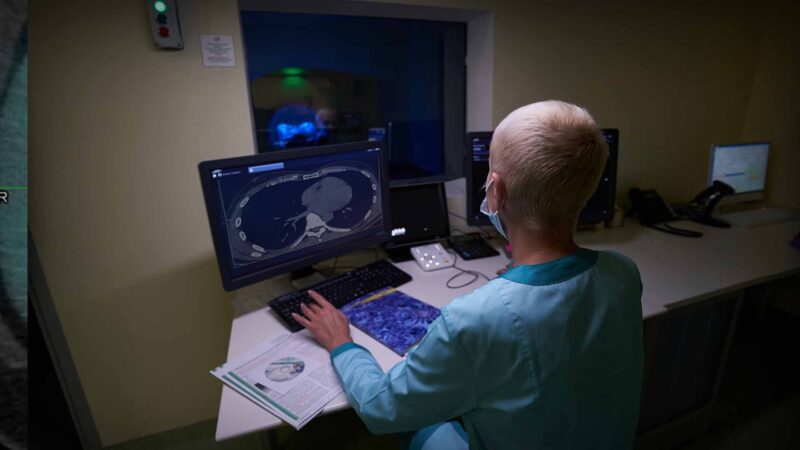In 2021, the Australian Thyroid Foundation released analysis to show, well over 1 million Australian are living with an undiagnosed thyroid disorder, including thyroid cancer, lower IQs, lifelong disability, and a causal or possible contributory factor – in the development of other neurological disorders such as ADHD and autism. Some of the challenges for diagnosis and treatment can be addressed by producing material for health care practitioners during patient presentations.
‘Recent statistics show well over 1 million Australians are living with an undiagnosed thyroid disorder, awareness and testing can prevent unwarranted outcomes for mothers and their babies’ says ATF CEO Beverley Garside OAM
Australia has been labelled by the World Health Organisation (WHO) as being iodine deficient, and evidenced in research in 2005-06 by Westmead Hospital and Sydney University (see 1 below)
The World Health Organisation states iodine deficiency during pregnancy and early infancy –the first 1000 days of life when development of the human brain is so critical – is the commonest global cause of preventable intellectual disability (see 2 below)
Thyroid Disorders affect all Australians of all age groups and demographics. Awareness is the key to ensuring the public and healthcare professionals do not overlook a thyroid disorder which could be affecting health and wellbeing.
– 1 in 10 Australians will be affected by some form of thyroid disorder
– 7 of the 10 are women
– Over 1 million Australians are undiagnosed
– 60,000 Australians are diagnosed each year
– Thyroid Cancer is increasing, affecting younger Australians
– Iodine Deficiency & Thyroid Disorders affect pregnancy outcomes for women of childbearing years.
As a Not-For-Profit health charity, The Australian Thyroid Foundation Ltd (ATF) mission is to offer information, education, advocacy and support to members and their families, using services provided by ATF and raise much needed awareness throughout Australia about the consequences of thyroid disease and iodine deficiency and the benefits of achieving good thyroid health.
In recent years ATF has launched campaigns aimed at reaching a number of patient types requiring treatment for the thyroid gland and thyroid hormone production. These have created some level of awareness within the public and health care professionals (HCPs).
The Australian Thyroid Foundation has lodged a Pre-Budget Submission for the Federal Budget 2024-25 to counter increasing misinformation on social media creating dietary deficiencies such as an increasing number of young women, who are planning pregnancy or already pregnant opting for plant based milks such almond, soy or oat milk coffee as an alternative to standard cow’s milk, which is a source of iodine and alternate milks do not include.
Australian Health Journal spoke with endocrinologist, Adj. Prof. Duncan Topliss AM, a Medical Advisory Board Member at The Australian Thyroid Foundation Ltd, about issues raised in the submission.
References
1. Evidence for iodine deficiency in the Australian population was derived from a national study on Australian schoolchildren in 2003-2004 in which the ATF actively participated with a large group of Australian clinical researchers. The outcome was the implementation of the mandatory iodine fortification of all salt used in the baking of bread and bread products in Australia and New Zealand.
2. Multiple studies undertaken on pregnant women have revealed that iodine intake in at least 50% of pregnancies in Australia is deficient, despite the addition of iodised salt to bread, putting the next generation of Australian children at risk of neuro-developmental disorders and lower IQ.
You Might also like
-
Surgical Site Infection (SSI) Synopsis, including modifiable and non-modifiable risk factors
Talking to the Australian Health Journal, Professor Russo states there is a particular concern in joint operations, such as hip or knee replacements, as infections in these areas can have severe consequences, including the removal of the infected joint, prolonged treatment, and significant costs for both hospitals and patients. Despite the substantial impact of surgical site infections, Australia lacks a national surveillance program for these infections, making it challenging to obtain accurate data. However, an estimate suggests that around 45,000 surgical site infections occur annually in Australia, resulting in approximately 900 deaths.
-
25 years of non-indexation of nuclear medicine impeding access & affordability
The President of the Australasian Association of Nuclear Medicine Specialists (AANMS), Associate Professor Sze Ting Lee spoke with Australian Health Journal about the following:
Usual levels of nuclear medicine services in Australia each year
Current levels of nuclear medicine services in Australia
How changing demographics in people moving to regional areas has impacted access to nuclear medicine services
The nuclear medicine workforce including trainees
The key recommendations from the pre-budget submissionIn the lead up to the Australian Federal Budget in May 2023, Australian Health Journal reached out to peak health industry bodies to hear about their priorities, either noted in pre-budget submissions lodged with Federal Government in January 2023 or in recent forums such as the Strengthening Medicare Taskforce.
-
Research funded to investigate early-onset bowel cancer progression
Bowel Cancer Australia recently announced a team led by Professor Michael Samuel as the successful applicant for a three-year $600k early-onset bowel cancer research project through the 2023 round of Cancer Australia’s Priority-driven Collaborative Cancer Research Scheme (PdCCRS).



